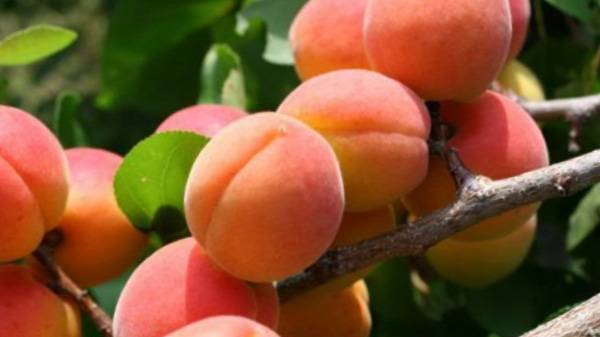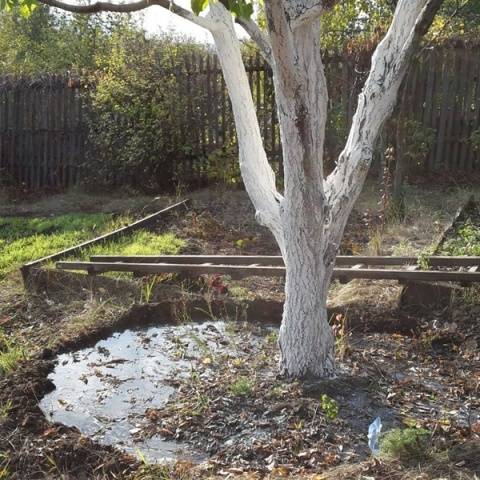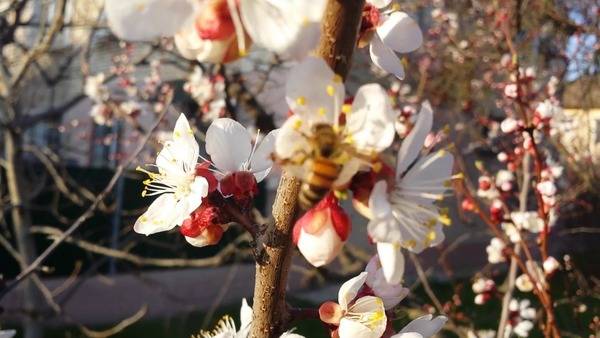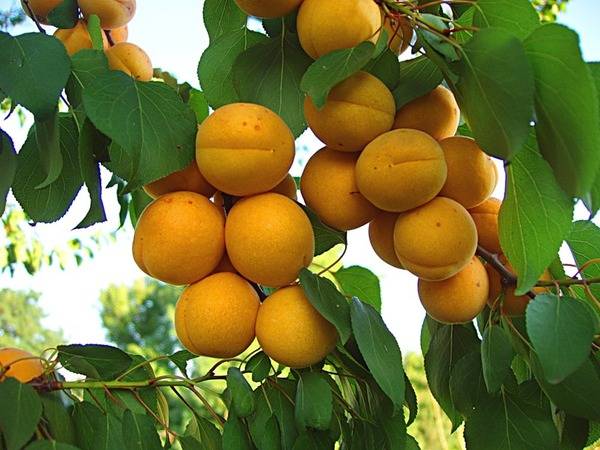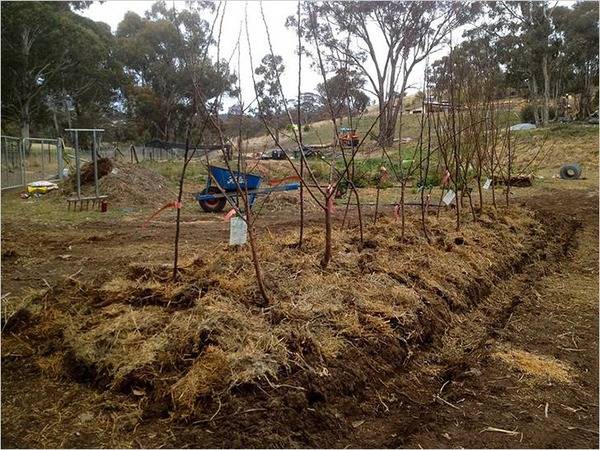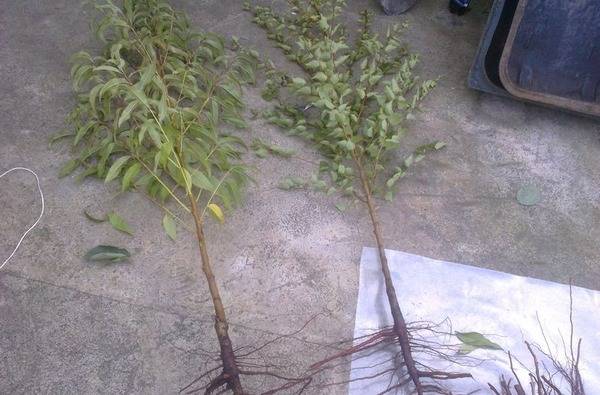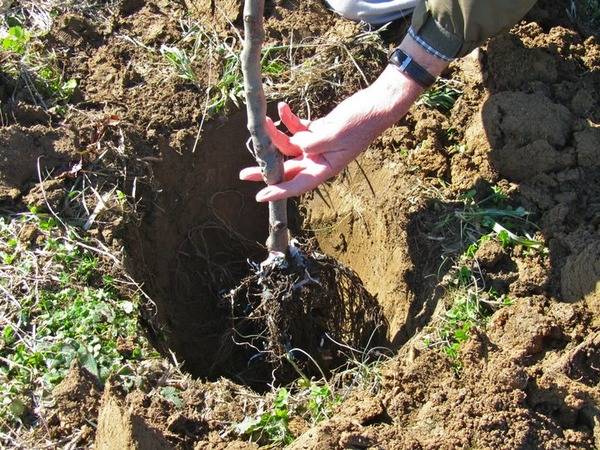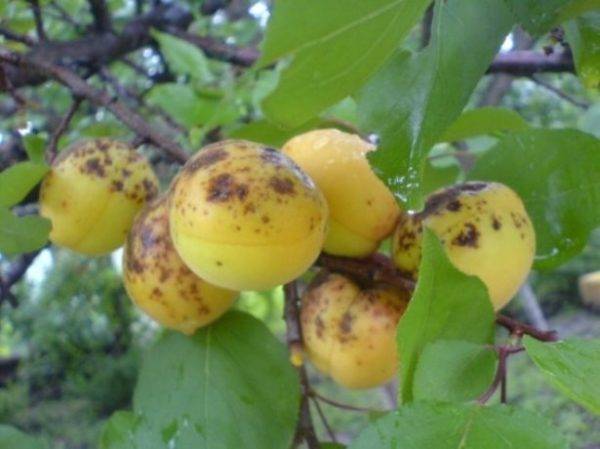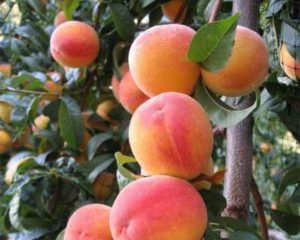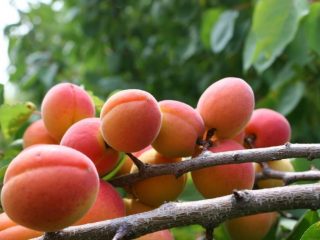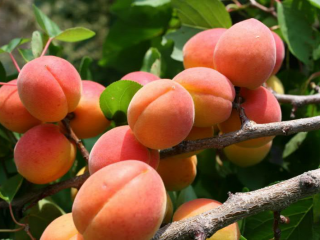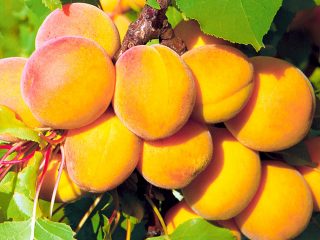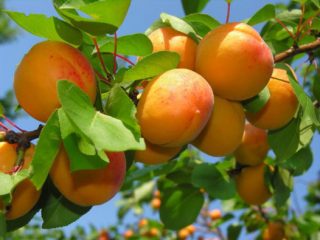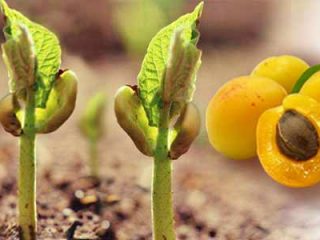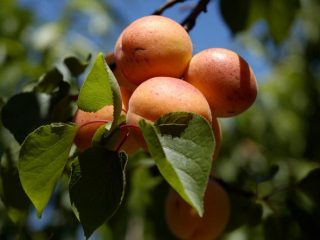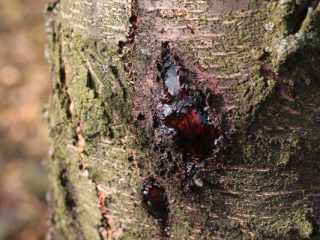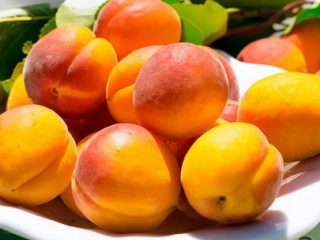Content
For planting a variety of fruit crop such as apricot Zhigulevsky souvenir, it is worth familiarizing yourself with its description and main characteristics. When choosing a seedling for rooting, you need to know how to choose the right plant. The quality of the resulting harvest depends on the selected site and soil in which the young apricot tree will be placed.
History of selection
The Zhigulevsky souvenir variety of apricot was bred by an amateur breeder, self-taught in the field of growing fruit crops - V.V. Bessmertnov. Apricot was obtained in the territories of Samara, in the city of Zhigulevsk.
Description of culture
The description of the apricot Zhigulevsky Souvenir states that the trees of the variety grow quickly, stretch to a height of 3-4 m. The crown has a pyramidal shape and has an average density of foliage. The bark on the branches has a smooth structure and a light brown hue.
Every year, the Zhigulevsky Souvenir apricot produces green shoots with a thin cranked structure. The branches bear oval-shaped, elongated leaf plates with a pointed end. The external structure of the leaves is wrinkled, with a rich green color. On the underside there is pubescence with villi.
The fruits are yellow in color, with a reddish side. The inner pulp has a soft orange tone and is dry. Apricots Zhigulevsky souvenir medium size, 22-35 gr.
Apricot Zhigulevsky souvenir is planted in areas of central Russia. Unfavorable conditions provoke the fall of flower buds, which leads to a lack of harvest. The variety brings the greatest volumes of harvest when planting seedlings in the area from Voronezh to the Siberian Abakan.
Characteristics
To get a high-quality harvest by mid-summer, it is recommended to familiarize yourself with the characteristics of the apricot variety Zhigulevsky Souvenir.
Drought resistance, winter hardiness
Apricot Zhigulevsky souvenir does not tolerate a long-term lack of nutritious moisture. If weather conditions in summer allow the tree trunk circle to remain wet, then it is not worth adding moisture. If the summer is hot, then watering is carried out as needed, when the soil dries out near the tree’s rhizomes.
The tree is not afraid of frost and can withstand temperatures below -300WITH.
Pollination, flowering period, ripening time
Apricot Zhigulevsky souvenir is an early variety. Its flowering begins in early March. A plant with flowers can normally tolerate sub-zero temperatures, this will not affect the yield.
Zhigulevsky Souvenir is a self-fertile apricot. The fruits set even in unfavorable weather conditions. Apricots ripen by mid-summer, not earlier than July 22-27. If the harvest occurs in an unripe form, the storage period is reduced to 7 days.
Productivity, fruiting
Due to independent pollination, the productivity of the Zhigulevsky Souvenir apricot is good. A disadvantage that affects the volume of harvested crops is the return of spring frosts.
The harvested apricots are smooth, without deformation, with a clearly defined transverse stripe. From one tree you can collect an average of up to 45 kg. apricot fruit Zhigulevsky souvenir. They are distinguished by good transportability, but if injured, they quickly deteriorate.
Application area
Apricot Zhigulevsky souvenir is used both for fresh consumption and for preparing various preparations for the winter. The jam made from the fruit is delicious.
Resistance to diseases and pests
Apricot Zhigulevsky souvenir is not subject to infection by pathogenic bacteria. With constant monitoring of the condition of leaf blades, the infestation of parasitic insects is detected in time, which helps to eliminate them.
Advantages and disadvantages
The disadvantage of growing the Zhigulevsky souvenir apricot is its sensitivity to weather conditions. Swelling of buds in early spring leads to fruit loss.
Positive aspects of planting the Zhigulevsky souvenir variety of apricot:
- Good frost resistance.
- Possibility of self-pollination.
- Immune to diseases and parasitic individuals.
For the rapid development of a tree, specific care is required.
Landing Features
To grow a young seedling, optimal growing conditions are required. The location, soil, neighbors are selected.
Recommended timing
The Zhigulevsky Souvenir apricot with a closed root system takes root in the spring so that the seedling has time to produce adventitious roots and prepare for wintering.
Choosing a suitable location
Zhigulevsky Souvenir does not like soils where groundwater is present. Place the apricot on a hillock in a lighted place. The site needs to be protected from drafts and piercing winds.
If it is not possible to find a place, drainage is done. The Zhigulevsky Souvenir apricot has no special soil requirements.
What crops can and cannot be planted next to apricots?
Apricot Zhigulevsky Souvenir does not accept its neighbors. Closely located currants of any shade and raspberries negatively affect the apricot. You should not plant a young tree on the ground after removing a plum, cherry or peach.
Any crops block the seedlings from light, absorb nutrient moisture and fertilizing.
Selection and preparation of planting material
It is better to purchase a seedling in rooted form. Bare rhizomes can be weathered and take a long time to take root after rooting.As the root system develops, it will acclimatize more favorably in the new location and will not be susceptible to diseases.
You need to look at the rhizomes. They must be at least 10-15 cm in length, branched, healthy, without the presence of rot or signs of disease.
Landing algorithm
Apricot seedlings Zhigulevsky Souvenir are planted at a distance of at least 4-5 m. The pit is prepared in the fall. It is dug out in dimensions of 70x70x70 cm. A hill is made at the bottom, and a seedling is placed on it. The rhizomes are straightened to the sides and covered with earth.
A pole is stuck next to the rhizomes as a support for the young tree. When rooting, make sure that the root collar is 7-8 cm above the ground surface.
Subsequent care of the crop
Subsequent care of the plant is carried out according to the following rules:
- Pruning is carried out after planting so that a twig 0.5-0.9 m high remains.
- Watering - daily in dry summers. In wet weather it is not necessary.
- Fertilizing is introduced during active vegetation with organic and mineral substances.
- Preparation for winter - seedlings are wrapped in burlap to avoid freezing. Peat and spruce branches are placed on the tree trunk circle, which will prevent damage to the bark by rodents in cold weather.
By following the care recommendations, a powerful tree is formed that annually produces a high-quality harvest.
Diseases and pests, control methods and prevention
In some cases, the Zhiguli souvenir becomes infected with pests and pathogenic bacteria. The following diseases and measures to combat them are distinguished.
Disease | Symptoms of the problem | Precautions and exposure |
Cytosporosis | Small gray tubercles form on the bark. The foliage withers, the branches dry up | Dry shoots are removed; for prevention and treatment in the spring, the tree is sprayed with Bordeaux mixture (1%) |
Bacterial necrosis | The bark becomes covered with burns that turn into ulcers from which gum flows | Affected areas are cut from the tree and burned. Open sections are disinfected with a solution of copper sulfate (1%), covered with garden pitch. |
Moniliosis | Leaves and shoots become covered with a brown tint and fade | When the buds bloom, spray with 1% Bordeaux mixture. If signs are identified, irrigate the tree with Topaz or Topsin-M |
According to reviews of the Zhigulevsky Souvenir apricot, the plant is often attacked by various parasitic individuals.
Pests | Symptoms of the problem | Precautions and exposure |
Aphid | Placed on the underside of the sheet. The juice is sucked out of the leaf, which leads to curling and drying out. | Damaged fruits are removed from the tree. The old bark is removed, the trunk is whitened, and the soil is dug up. The foliage is sprayed with Chlorophos (0.2%), Entobacterin (0.5%), Fufan, Fitoferm |
codling moth | They spoil the fruit from the inside | |
leaf roller | They eat all flower buds and developing fruits. |
Thanks to constant monitoring and timely neutralization of the first signs of disease or the presence of parasites, crop loss can be avoided.
Conclusion
Zhigulevsky souvenir has significant advantages over other varieties of apricots. But to obtain a high-quality harvest, it is worth planting the seedling correctly and caring for the plant.
Reviews
